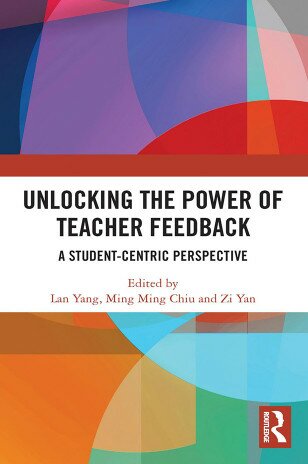Unlocking the Power of Teacher Feedback: A Student-Centric Perspective
- 作者:
- 杨兰、赵明明、晏子编着
- 出版社:
- Routledge
- 出版日期:
- 2024
- 详情:
142 页
ISBN print: 9781032713182
ISBN electronic: 9781032713205
This volume addresses the pivotal role of feedback in enhancing students' motivation and learning. Through a series of innovative studies, it uncovers the intricacies of how students perceive and utilize feedback, offering practical strategies for educators while bridging the gap between feedback research and classroom practice.
The book showcases six outstanding studies that offer unique insights into how teacher feedback influences student learning and achievement, all from the perspectives of students. Chapters delve into various meaningful explorations of the paramount role of feedback in education, offering readers profound insights into its pivotal significance, the nuanced ways students respond to it, and the intricate mechanisms governing its influence on student achievement and engagement. The volume uncovers key mediators such as growth-oriented goals, feedback beliefs, and school identification, shedding light on how these factors shape the impact of feedback. It also introduces practical strategies, like rebuttal writing, and emphasizes the need for personalized feedback aligned with students' cognitive styles. Additionally, the book provides a comprehensive comparison across grades and feedback comments, all while serving as a practical guide for educators, researchers, and policymakers, thereby facilitating the implementation of evidence-based feedback practices grounded in students' voices and perspectives, ultimately enriching their learning.
This book will be a key resource for researchers and academics in educational psychology, student learning, and assessment, while also appealing to educators, teachers, school administrators and policymakers seeking to enhance their understanding of feedback's role in education and to improve their feedback practices. It was originally published in Educational Psychology.








